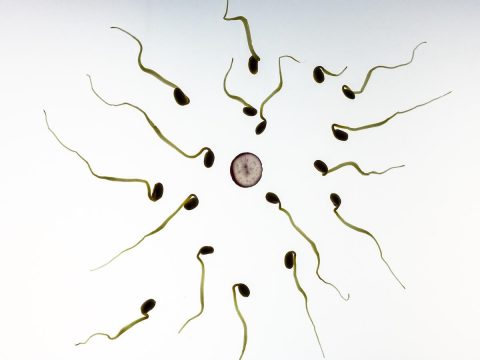Anonymous miracle-workers – sperm and egg cell donors in Latvia!
Infertility treatment clinic “Clinic EGV” in Latvia, Riga is a favourite destination for medical tourism. European grade technologies are available, along with highly qualified doctors and a personal attitude to every client. How does the selection process for the sperm and egg cell donor programme happen? Read and find out!
Altruistic motivation
Our experience shows that people, who have been in despair about an inability to conceive, have the best understanding of why gamete donation is important.
“We have observed that gametes are actively donated by those people, who have relatives or friends, who have faced problems related to infertility,” says Dr Zane Vītiņa, Head of “Clinic EGV”, gynaecologist-reproduction specialist. Men and women alike donate sperm and egg cells voluntarily and thus help couples or single women, who are unable to conceive a child on their own. “Cases, when a woman decides against having children of her own, are frequent, therefore they choose to give this opportunity to someone else, who really wishes to be a mum, but is unable to do it,” says the doctor.
Sperm donor programme
According to the legislation of Latvia a man between 18 – 41 years of age in good mental and physical health can become a sperm donor. Donors are carefully selected through health tests: samples from them are analysed for infections, AIDS, hepatitis B and C, sexually transmitted diseases and genetic disorders. They also have to undergo psychiatric assessment and are tested for drug use.
“The most active sperm donors are people, who have had infertility problems. We spoke with couples, who have already undergone infertility treatment at our clinic – if a man has good sperm quality, he is happy to become a donor, because he understands how important it is. We are actively conducting informational campaigns. Students and other young people donate sperm as well. “Clinic EGV” also raises public awareness by explaining how important it is to donate sperm and egg cells, thus promoting empathy.
It is important that a man can donate sperm for storage in a frozen state. If a man has an oncologic disease or planned surgery, after which the sperm quality will decrease, there is a chance to create “reserves” in the case that the man wishes to have descendants in the future.
Who uses donated sperm? Couples who have experienced health problems with regard to the male, single women and homosexual couples.
Egg cell donor programme
“Egg cell donation is a lot more complex. Egg cell donor programme helps those women, who due to a disease, surgery or other reasons (for example, early menopause or exhausted ovaries) do not have an opportunity to conceive a child from their own egg cells,” says Dr Zane Vītiņa.
According to the legislation of Latvia a woman between 18 – 34, in good psychological and physical health, may become an egg cell donor and this cannot be a spontaneous or ill-conceived decision. Therefore every woman, who wishes to become a donor, receives a very serious consultation. It has to be understood that the procedure is not simple, but with a careful approach it is not dangerous to the donor’s health or life. If the doctor considers that the particular donor has risks, they are discussed individually.
The egg cell donation process at “Clinic EGV” takes place on the second or third day of the menstrual cycle. Within a period of 10 – 14 days the donor needs to perform injections at certain times and a regular ultrasonography must be undertaken – it is necessary to control the speed of growth of the follicles. When follicles have reached the right size and egg cells are ready to be removed, follicular puncture and egg cell collection is performed under general anaesthesia. After the procedure, at the beginning of the next menstrual cycle, the donor comes for a repeated control visit.
Anonymity
Donors in Latvia are anonymous and their anonymity is protected by law. Even if the donor would like to find out the identity of the child born from their egg cell or sperm cell, this is not possible. The child can also not find out, who their anonymous miracle-worker is. This does not mean, however, that reproductive cells are assigned randomly – future parents may know the height, weight, colour of skin, hair and eyes, blood type and Rhesus factor, degree of education and health history of the donor.



